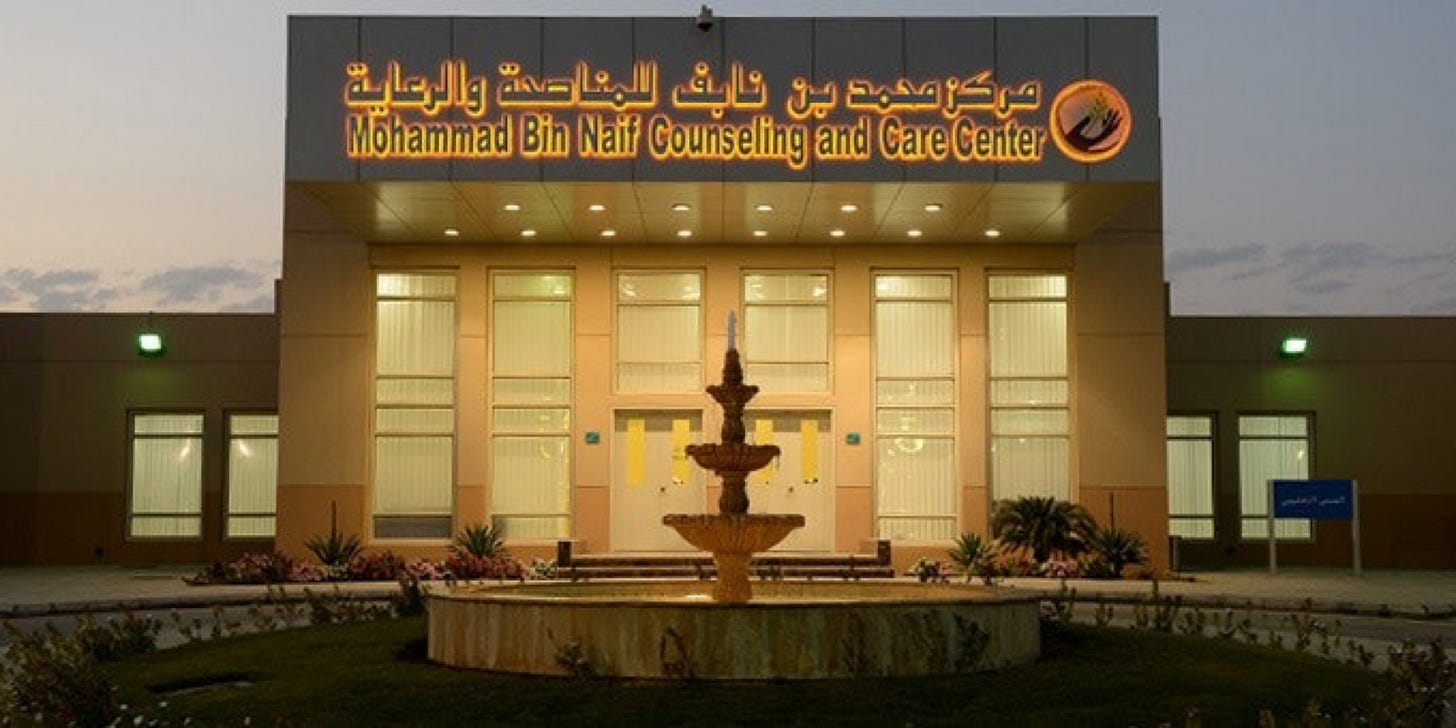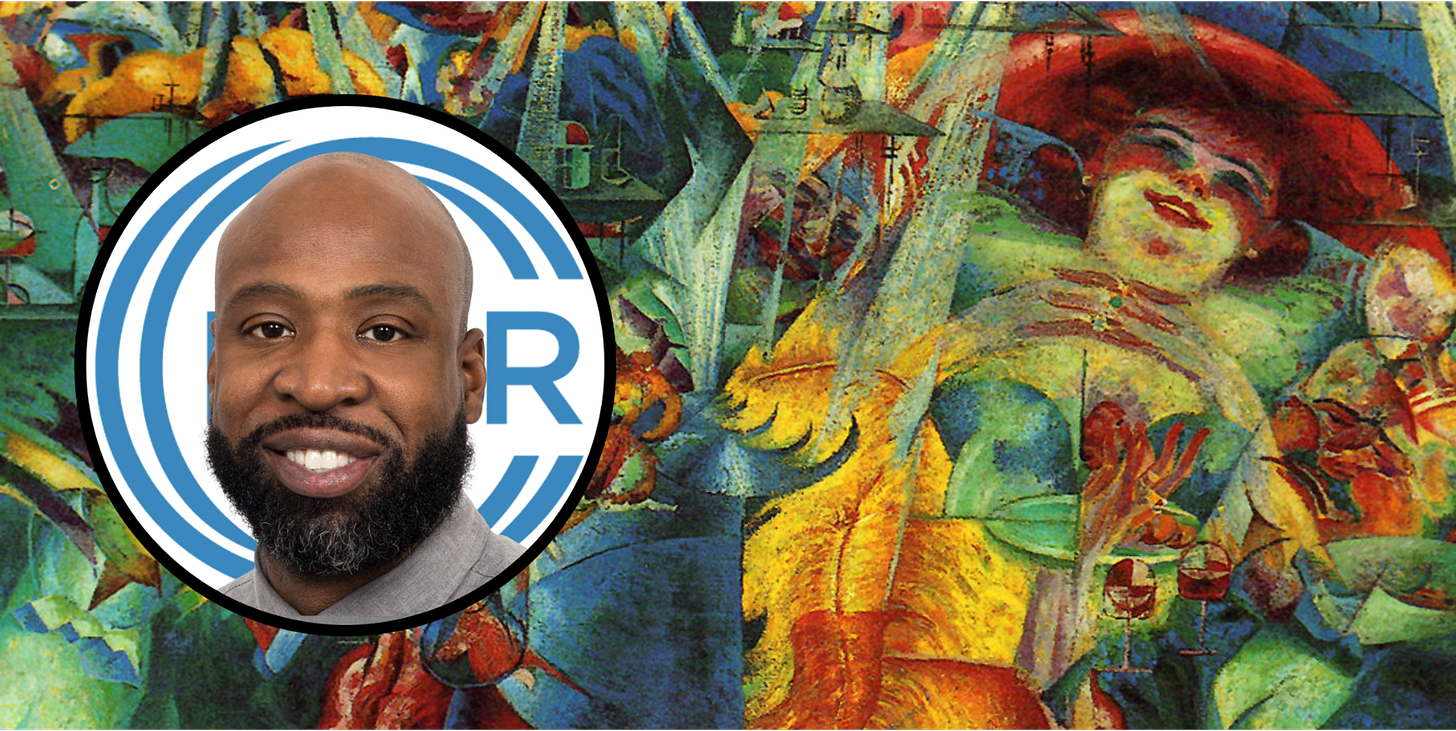For audio versions of our FAIR News and FAIR Weekly Roundup newsletters, subscribe and listen to our FAIR News Weekly podcast here.
This week, journalist and FAIR Advisor Zaid Jilani wrote a review of the documentary film Jihad Rehab by filmmaker Meg Smaker, which “asks its viewers to consider the possibility that at least some of those locked away by the United States after the onset of the War on Terror were not monsters but men.”
Jilani understands that it may be difficult for many Americans, and especially those who had lost loved ones on 9/11, to watch and consider a “humanizing portrayal” of people who acted as terrorists, but urges us to consider the complex reality that “human beings aren’t simply angels or demons.”
It is my belief that if the film is picked up by distributors and released more broadly, it will help many Americans make the transition from the unadulterated rage they felt after 9/11 to a more constructive inquisitiveness about what drives people to terrorism—and how we can help people choose a better way.
Reid Newton, a paralegal at FAIR, told her personal story about confronting the new intolerant orthodoxy that has suddenly swept across broad swaths of our society and culture. A particularly off-putting aspect of this new orthodoxy, according to Newton, was the simplistic categorizing of people as either “good” or “evil” according to their political beliefs.
The beliefs that align closely enough with our tribe’s prevailing orthodoxy are considered “good,” and those that depart are “evil.” No nuance necessary. The voices of the reasonable majority on both sides tend to get drowned out by the loudest and angriest—who are also, quite often, the least prepared to offer real solutions.
Although she has lost friends and received abuse for openly disagreeing with aspects of this ascendant ideology, Newton maintains that “the fear of these things is a lot worse than the actual things themselves,” and calls upon everyone to be brave and stand up for what they believe in.
Last week we published a profile of FAIR Advisor Zaid Jilani as part of our ongoing Advisor Spotlight series. Jilani is one of those rare journalists known for being able to pull in audiences from across the political spectrum. Indeed, his writing has appeared in diverse outlets such as The Intercept, Jacobin, The National Review, Newsweek, Quillette, UnHerd, Tablet, The Guardian, The Nation, and more.
But while his writing often effectively bridges political divides and penetrates ideological bubbles, Jilani is also determined to bridge the educational divides that so often separates readers by explaining complex ideas in ways that anyone, no matter their educational level, can understand.
If you look at the writing out there on some of these topics, it’s often so wordy and verbose,” said Jilani. “It’s obviously appealing to a college educated environment or audience. When I write, I try to make it so that someone who barely graduated high school and someone who has a PhD should be able to read it and understand and take something from it.”
Read Zaid’s full Advisor Spotlight profile here.
For Discourse, FAIR Advisor Erec Smith wrote about the Showtime documentary called Everything’s Gonna Be All White. He explained that he had expected to experience “sadness at how far backward we have moved regarding race relations in this country,” but instead felt a sense of overwhelming embarrassment on behalf of the speakers for their tenacious adherence to immature ideas.
Above all, Smith is confused about why so many who should know better appear to take these bad ideas so seriously, and argues that ridicule, when used appropriately, may be our best tool in refuting fashionable nonsense.
Why do we take such ridiculous ideas seriously? Even if the people harboring those ideas can persuade large numbers of people who do not know better, why are the people who do know better tolerating such ideas? Why are they suffering such fools as seriously as they do? Why don’t they respond accordingly? Why don’t they ridicule ridiculous ideas?
For the National Post, Canadian commentator and author Rex Murphy discussed the “new dogmas” that are currently “infecting our education system.” Despite the decline of traditional religious belief and concomitant rise of secularism, Murphy believes that the dogmas and doctrines of old have simply “been replaced with the dogmas of political correctness, social justice and of the trinity of diversity, inclusion and equity.”
The threat of papal excommunication no longer keeps monarch or peasant awake. But offend the new doctrines and dogmas—say an offensive word, defy identity politics, cast a person with the “wrong” skin colour for a role in a movie, get caught reading Dr. Seuss in public, fail to applaud any of the insisted upon truths of woke scripture—and punishment quickly follows.
But how did this happen, and so quickly? Murphy believes it started with our “schools, the school boards and government departments of education” inserting “dogmas about the evils of western thought and culture…into the very bones of the education system.”
For Quillette, medical doctor Robert J. Morris wrote about the futility of attempting to achieve “racial equity” in American scientific research. In recent years, many top journals such as Nature, the Journal of the American Medical Association, Science, and the New England Journal of Medicine, have published statements and studies reporting on the lack of “diversity” in the sciences and the importance of achieving “racial equity.”
The asserted cause for the racial gaps in STEM fields is invariably “systemic racism,” yet Morris explains that this claim “cannot be proven unless there is first an assessment of how many academically qualified minority students are available to meet equity goals.” Until this necessary assessment is carried out, it is both “inappropriate and irresponsible to attribute the under-representation of minorities in STEM fields to ‘systemic racism.’”
For Reason, Lenore Skenazy, president of Let Grow and founder of the Free-Range Kids movement, wrote about our cultural obsession and overestimation regarding the impact of “trauma” on people’s lives. According to Skenazy:
It's almost as if our culture is accidentally creating PTSD by expecting it, based on the assumption that no one could possibly emerge from a trauma psychologically intact. In trying to be kind and caring, we are crippling people instead. For the sake of the traumatized themselves, it's time to stop treating them as damaged goods.
The consequences of the overestimation of trauma, or the underestimation of human resilience, are manifold. It can allow “kindness to curdle into vengeance,” and has the effect of interpreting any crime as being so “existentially awful” that it “becomes the rationale for giving longer and longer sentences.”
For the Heterodox Academy’s blog Heterodox, Nate Otey reports on the growing problem of students being reluctant to discuss controversial issues due to fear of social sanction by their peers. However, according to Otey, this anxious and fearful classroom climate may be overcome by “practicing the skills of intellectual charity.”
While many school and university faculty commendably model “charitable thinking skills,” Otey says that this is “generally insufficient to help students become more charitable,” and that “the practice of charitable thinking skills must be made explicit as an instructional goal, or most students won’t learn it.”
Join the FAIR Community
Become a FAIR volunteer or to join a FAIR chapter.
Join a Welcome to FAIR Zoom information session to learn more about our mission, or watch a previously recorded session in the Members section of www.fairforall.org.
Take the Pro-Human Pledge and help promote a common culture based on fairness, understanding, and humanity.
Join the FAIR community to connect and share information with other members.
Share your reviews and incident reports on our FAIR Transparency website.













